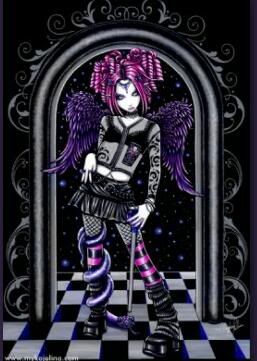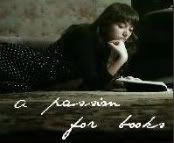The Harvesting
The Harvesting Series, Book 1
Melanie Karsak
Melanie Karsak
Genre: Horror/Urban
Fantasy
Publisher:
Steampunk Press
ISBN-10: 1479327247
ISBN-13: 978-1479327249
ASIN: B009GI3YBY
Number of pages:
394
Word Count: 71000
Cover Artist:
Michael Hall Photography
TV interview with
book info:
Book Description:
When mankind finally consumes itself, can any spark of
humanity survive? Layla fights to keep those she loves alive when the zombie
apocalypse unfolds, but she soon learns that zombies are not the only problem.
With mankind silenced, those beings living on the fringe seek to reclaim power.
Layla must learn who to trust, fast, if she hopes to save what is left of our
kind.
“If you ever need to slice someone’s head off, this
is the blade you want,” I said as I lifted a curved sword off the table in
front of me. “We’ve been practicing épée and foil so far, but tonight I want to
introduce you to the sabre.” The practice sabre’s curved blade reflected the
orange streetlight shining in through the window. A grant from the Smithsonian
where I worked allowed me to teach my two passions: ancient weapons and their
arts. “The sabre is a slashing weapon,” I continued and then lunged, showing
the wide-eyed and excited students a few moves. “And in general, it’s my
favorite,” I admitted with a grin.
The students laughed.
“Is that why you have it tattooed on your arm?”
Tyler, one of my best fencers, asked.
My hand went unconsciously toward the tattoo. The ink
was a sword interlaced with other once-meaningful symbols. “That’s not just any
sabre,” I said, mildly embarrassed. “Here, let me show you. I brought something
special tonight.” Setting the training sabre down, I lifted a rolled bundle. I
laid it down on the table and unrolled it to reveal weapons in various
elaborate scabbards.
“Some are épée, foils—you can tell by the hilt—a
broadsword, a claymore, a katana, a scimitar, throwing daggers,” I said,
pointing, “but this, this is a Russian shashka.” I pulled the shashka from the
bundle. “It’s like a traditional sabre, but has no guard. She’s light,
single-edged, wielded with one hand, and good for stabbing or slashing. Not
awkward in close quarters like a Scottish claymore, but it will kill you just
as dead,” I said with a smile. I unsheathed the weapon and gave it an under-
and over-hand spin around my head, shoulders, and back.
The students grinned from ear to ear.
I put it back in its scabbard and handed the shashka
to them. “Pass it around, but keep in mind it is sharp enough to cut a blade of
hair in half.” I then turned my attention to Tyler. “Now, since you’re so
interested, let’s see how you do with the sabre.” I tossed one of the training
swords to him.
Tyler, already in his gear, jumped up and lowered his
fencing mask. “But you’re not in gear,” he said.
I shrugged. “Hit me--if you can.’”
We stood at the ready, made the ceremonial bow, and
began. Tyler was not overly aggressive, which is partially why he was so
successful. He waited for me, moving slowly. He was smart, quick, and often
tried to over-tire his opponent.
I waited, dropped my sword a bit, and let him make
the lunge. He took the bait.
The swords clanged together, and we clashed back and
forth across the strip. He lunged and slashed while I dodged and blocked. He
was fast. I was faster. When he lunged again, I ducked. With an upward
movement, I went in.
“A hit,” Kasey called.
They clapped.
“Man, that’s what you get for taking on a former
state champ—and the teacher,” Trey told Tyler with a laugh.
Tyler pulled off the mask and smiled at me.
Just then, my cell rang. I would usually ignore it,
but something told me to answer.
“Everyone pair up and start working with the training
sabres,” I said and pointed to the sword rack. I went to my bag and grabbed my
cell.
Before I could say hello, she spoke.
“Layla, Grandma needs you to come home,” my
grandmother’s voice, thick with Russian accent, came across through static. I
was silent for a moment. My grandmother lived 500 miles away, and she never
used her telephone. With the exception of her T.V., she hated technology. She’d
cried and begged me to take away the microwave I’d purchased for her one
Mother’s Day.
“Grandma? What’s wrong?”
“Come home now. Be here tomorrow,” she said. She hung
up.
I lowered my cell and stared at it. Confused and
worried, I dialed her back. The phone rang, but she did not answer. I had
obligations: practice, bills to pay, groceries to buy, tons of work to do, and
a date for god-sakes. But my grandmother was the only one I had left in the
world.
“Sorry, guys. Emergency,” I called to my students.
Disappointed, they groaned.
“Sorry. Let’s pack it up for the night.” My hands
shaking, I slid the shashka back into the bundle and rolled up the weapons.
What had happened? Maybe Grandma was sick. Maybe she had some problem. Or maybe
she had seen something.
The monuments on the Mall faded into the distance
behind me as I made my way to my Georgetown apartment. It was Friday night.
Wisconsin Avenue was packed. The upscale shops and restaurants teemed with
people. In the crowd you could see the mix of international tourists,
Georgetown students, and designer-dressed hotties headed to clubs. I sighed.
For the last month I had turned myself inside out trying to get the attention
of Lars Burmeister, the German specialist the Smithsonian had brought in to
consult on our new medieval poleaxe exhibit. He had finally asked me to dinner;
we were going to meet at Levantes, a Turkish restaurant near Dupont Circle, at
nine that night. I had dreamed of authentic dolma and a chance to sit across
from Lars somewhere other than a museum. I had even bought a new dress: black,
strapless, come-hither.
I circled my block three times before I finally found
a parking space. Regardless, I loved Georgetown. It was early fall. The mature
trees had turned shades of deep red and orange and were losing their leaves.
The air was filled with an interesting mixture of smells: the natural decay of
autumn, dusty heat from the old cobblestone streets, and the mildly rancid odor
of too many people. In my 4th floor attic apartment of an old
Brownstone, I could occasionally catch the sweet scent of the Potomac River. It
reminded me just enough of home.
The apartment was ghastly hot. The small, one-bedroom
had been closed up all day. I lifted the window and let the noise of the city
fill the room. The street lamps cast twinkling light across my apartment. The
weapons I had mounted on the wall, swords, shields, axes and the like, glimmered.
I peeled off my sweaty practice clothes. Pulling a bag from the closet, I threw
in several changes of clothes and a few other supplies. On my coffee table, my
laptop light blinked glaringly. An overflowing email inbox, an article on
bucklers that needed editing for a peer-reviewed journal, and a PowerPoint on
Medieval Russian swords for a presentation for next week’s symposium all called
me. My coffee table was stacked with paper. I was flooded with work; half my
department was out on sick leave. There was a bad flu was going around.
Thankfully, I had not yet gotten sick.
I pulled my cell out of my bag. I stared at the phone
for a moment; Grandma’s recent call was still displayed on the screen. I dialed
Lars’ number. My stomach shook when he answered.
“Guten abend, Lars. It’s Layla.”
“Ahh, Layla, good evening,” he replied.
I loved his German accent. He’d learned English from
a British teacher; he said arse with a German lilt. It made me smile. I could
tell by his tone he was trying to hide his excitement. I didn’t let him get
far. I told him I had been called away for an emergency. I could sense his
disappointment.
“I’ll be back by Monday. Let me make it up to you.
Dinner at my place Monday night?”
He agreed.
“Gute nacht,” I said as sweetly as possible, hoping I
had not pissed him off, and stuffed my phone into my bag. I stared out the
window taking in the view. I did not want to go back, not even for a weekend. I
loved my life. Hamletville was an old, ghost-filled place: too many memories,
too much heartache. Yet I knew my grandmother. If she said I needed to come
home, then I needed to come home.
I closed the windows, slid on a pair of jeans, a black t-shirt, boots,
and a light vest. I looked again at the display on the wall. At the center I
had crossed two Russian poyasni or boot-daggers. One dagger had the head of a
wolf on the hilt. The other had the head of a doe. I grabbed them and tossed
them in my bag. I then headed back downstairs and into the night. It was the
last time I would lay eyes on D.C. for many years.
About the Author:
Melanie Karsak, steampunk connoisseur, white elephant
collector, and caffeine junkie, resides in Florida with her husband and two
children. Visit the author at her blog, melaniekarsak.blogspot.com, to learn
more about upcoming projects.
http://www.goodreads.com/author/show/6539577.Melanie_Karsak
Enter to win this great prize! Follow the blog by email and GFC so you don't miss a thing.
Enter to win this great prize! Follow the blog by email and GFC so you don't miss a thing.




.jpg)






.png)














































